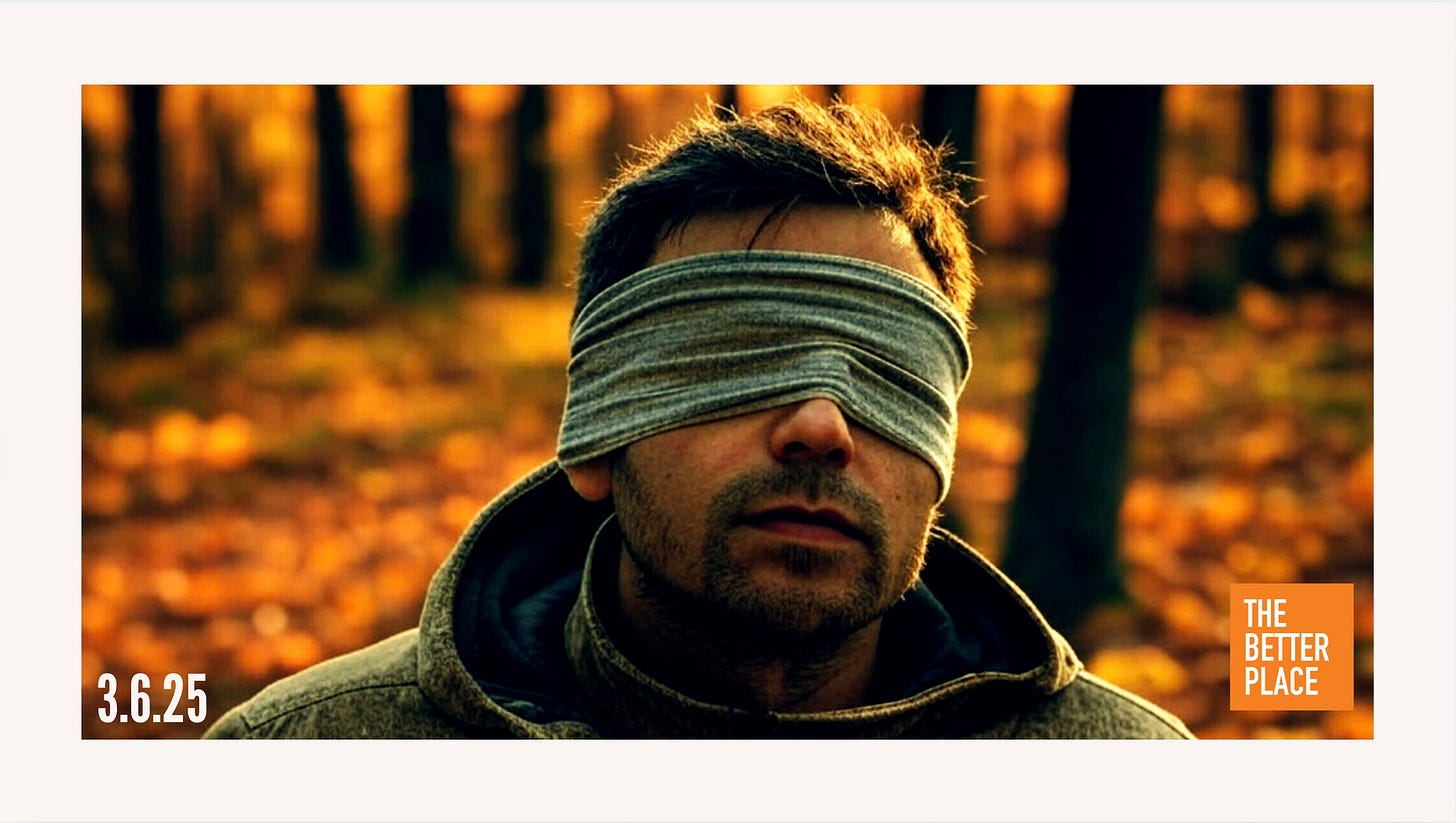Imagine hiking a beautiful mountain blindfolded.
Would you enjoy it?
It’s probably more likely that you’ll stumble, veer off course, miss the breathtaking views, and probably get lost and hurt. Wearing a blindfold is obviously not a good hiking strategy.
Now what’s that have to do with leadership and you?
Well, going. For a hike with a blindfold on is like living life without self awareness. Understanding ourselves, to make intentional choices, and eventually reach our full potential should be the goal of every leader —the hiker.
“Self-awareness gives you the capacity to learn from your mistakes as well as your successes. It enables you to keep growing.” — Lawrence Bossidy, Former CEO of Honeywell
Why self awareness matters
It make sense to avoid a blindfold if we’re going hiking but why does it Matter to avoid a blindfold when developing yourself as a leader. The key to understanding this question and answer lies in knowing the two types of self awareness.
According to a study by Dr. Tasha Eurich, only 10-15% of people are truly self-aware, despite most believing they are. This suggests that many of us are walking through life with an invisible blindfold, unaware of our blind spots; kind of like that hiker.
So what are the two types of Self-Awareness?
The first one is internal self-awareness. This type is centered on our ability to understand our own values, emotion, and thought patterns.
Let’s start with values. When you wake up early to go to the gym before everyone else does, then your value might be to get healthier, lose weight, and so on. If another person isn’t at the gym, then their values are geared towards something else. In life, many people don’t know or understand what they value and so make terrible career decisions.
Have you ever met someone that was incredibly in happy with their job? These people often times (not always) had many opportunities to pursue something else over the years. It sad that some reports say about 15% of people in America get to work in a field they’re interested in. That’s staggering. And honestly very sad if you consider how many hours a day we spend at work.
Now let’s address emotion. Emotions are normal. We all have them. And most of use completely daily to maintain relationships, or careers if we don’t learn to remotely understand or control them. There lies the problem—not being able to control your emotions. Self awareness also requires us to be hyper aware of these emotions and how they can help or hurt us.
Lastly, thought patterns, or more accurately, tendencies. The fact that we are a conscious species capable of having a self image and looking at ourselves in the mirror means we believe we are more in control of ourselves than we are. When an animal in the wilderness is hungry, they will just go do the things they need to do to eat and satiate their hunger. That it. End of story. We are the same. The problem with consciousness is that it blurs the line for us, but it is certain that we all have tendencies that hurt our decision making.
The second type of self awareness is external self awareness.
This type of self awareness shares a lot of similarities with the first and can be distilled into two parts.
The first part is how others perceive us and how our actions affect them. You see, when others interact with us, they are often faced with accepting our behaviors as they experience them. This is why no matter your intention, some people might be offended by the thing you know very well was not meant to be offensive. But they have no choice. Our decisions are affected by our values, emotions, and thought patterns, which have trained them to react as such.
The second part is that they also have values, emotions and thought patterns affecting them. The same factors we have, they have. Sure their values might differ and their emotions might shift at various times. And even their thoughts patterns might be different but at the end of the day, those peop out there, function like the person you have in here.
We have to remember that.
So what do we do with this information?
Here are a quick three:
Better Decision-Making – Studies show that self-aware individuals make more ethical and rational decisions (Goleman, 1995).
Stronger Relationships – High self-awareness correlates with increased empathy and emotional intelligence, reducing misunderstandings (Salovey & Mayer, 1990).
Professional Success – Research by Korn Ferry found that self-aware leaders are more successful, with companies led by highly self-aware CEOs achieving higher profitability.
“Self-awareness is the foundation of emotional intelligence, a key predictor of success in the workplace and beyond.” — Daniel Goleman, Emotional Intelligence
If you’re anything like me then you enjoy lot just learning about a topic but taking away something that’s actionable and can be applied ASAP. So here it is!
The Awareness Journal
Hear me out! If you have never kept a journal, you’re missing out. Spending a few minutes daily noting thoughts, emotions, and reactions is a great way to identify triggers, patterns, and blind spots over time. This will allow you to better understand yourself. It’s a dedicated moment every day where you can get to know yourself. All this information you collect on yourself is the best way to change, improve, or shift how you lead yourself and others. Remember, you can’t change what you don’t notice.
Ok I have to be honest with you. It took me years to get into a good journal rhythm. I kept trying to find the best way to journal and eventually threw away all suggestions I found online or from friends that journaled already. I found that having one book where everything was kept, was best for me.
So my recommendation is to start small without a specific goal or system. This is meant to be a personal space for you to explore yourself as a leader. This is not for the public. The journal is much more than just writing thoughts and feelings. It represents you removing the blindfold as you prepare for your hike.
Get started, I’ll see you on the trails!
Thanks for reading! If you found value in this newsletter, consider supporting it by forwarding it to someone who needs it or becoming a paid subscriber.
-Ivan
Founder / CEO - The Better Place












Share this post